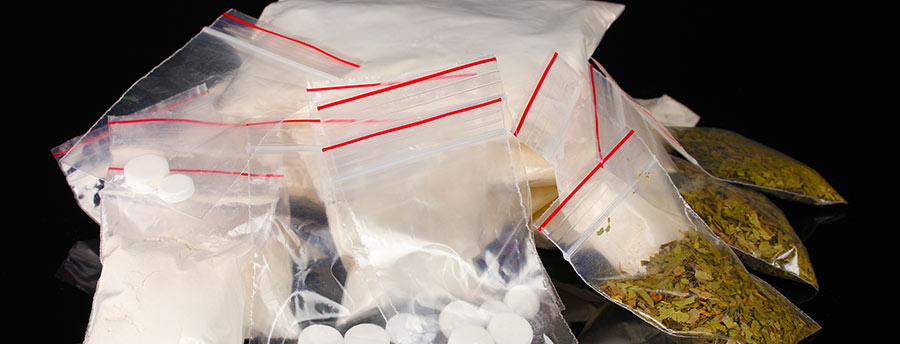Michigan Felony Charges for Delivery of a Controlled Substance Causing Death
The penalty in Michigan for delivering a controlled substance causing death is a felony conviction punishable by imprisonment for life or any term of years.

Delivery of Drugs Causing Death – How We Can Help You
Laws governing the distribution of prohibited narcotics were enacted to punish anyone involved in the sale, transportation, or unlawful importation of Schedule I to Schedule V medications. This encompasses anything from illegally obtained prescription medicines like OxyContin, fentanyl, and Xanax to illicit street narcotics like cocaine, heroin, and marijuana. The penalties are significantly increased for someone who shares, sells, transfers, or delivers illegal drugs to someone who dies after ingesting that drug. This offense is called Delivery of a Controlled Substance Causing Death.
The prosecution must prove the following elements for a conviction:
- First, the delivery of a controlled substance to another person. “Delivery” means that the defendant transferred the substance to another person intending to transfer it to that person. It does not matter if anything of value was exchanged.
- Second, the substance delivered was a Schedule 1 or 2 controlled substance other than marijuana. Examples include fentanyl, cocaine, heroin, LSD, and GHB.
- Third, the defendant knew they were delivering a controlled substance. The defendant must know the substance was a controlled substance, but it is immaterial if the defendant knew specifically what it was.
- Fourth, that victim consumed the controlled substance.
- Fifth, consuming the controlled substance, at least in part, caused the victim’s death.
“What if other factors contributed to the death?”
There could be multiple causes of death. The delivery does not have to be the only cause of the victim’s death. The prosecutor merely needs to show that the controlled substance was a contributory cause that had a significant role in the victim’s death. It would make no difference if the death were caused by more than one factor. Delivery of a Controlled Substance Resulting in Death is a general intent offense. The defendant does not have to intend for the controlled substance to result in death, only that it was delivered.

Penalty for Delivery of a Controlled Substance Causing Death Charges
In Michigan, a state law conviction is punishable by life in prison or any term of years. Prison time is mandatory. A federal conviction is punishable by a minimum of 20 years in the Bureau of Prisons and up to life. In federal court, serious bodily injury is enough to trigger the mandatory 20-year minimum (but not in state court). A second conviction in federal court carries life in prison.
Serious bodily injury means a substantial risk of death, protracted and obvious disfigurement, or a protracted loss or impairment of the function of a bodily member, organ, or mental faculty.
These cases are not as straightforward as they appear, so you need to find a skilled drug defense lawyer who can handle these charges in state and federal court. With a strong, skilled defense, it might be possible to avoid the otherwise inevitable lengthy prison sentences.
The Most Common Drug Resulting in Death – Fentanyl
Fentanyl is a prohibited substance classified as a schedule 2 substance. Fentanyl is classified as an opiate pain reliever. Even though it is a schedule 2 narcotic and heroin is a schedule 1, fentanyl is 75 times stronger than morphine, another powerful opioid. Fentanyl is frequently used to “cut” heroin, which means the heroin is diluted with fentanyl. When people buy heroin, they don’t always know what they’re getting, and fentanyl is often one of the drugs. The risk of a fentanyl overdose is very significant. A person who rarely or occasionally uses heroin is at the highest risk of overdose from ingesting fentanyl.
Defending Drug Delivery Resulting in Death Charges
It can be frightening to be accused of distribution or delivery resulting in death, but several defenses are available. The defense may try to raise a reasonable doubt about whether the defendant’s actions were a significant factor in inducing death and that other factors were more likely to be the cause. Motions to Suppress, which directly question whether the prosecution fulfilled the burden of proof at the preliminary examination, as well as pre-trial arguments focusing on the admissibility of evidence, may be considered by your counsel.

Experienced Criminal Defense Lawyers in Michigan
There’s a lot on the line if you or someone you care about has been accused of delivery of a controlled substance causing death in Michigan. Our criminal defense lawyers at LEWIS & DICKSTEIN, P.L.L.C. are familiar with the defenses available in these instances and may be able to use them to counter the prosecution’s claim and offer you the best chance of victory. Our highly trustworthy and knowledgeable drug crimes defense team is committed to fighting for your rights and safeguarding your interests throughout the legal procedure. We routinely appear in Wayne, Oakland, Macomb, Livingston, and Washtenaw Counties and throughout Michigan in state and federal courts. We have an unparalleled track record of success in achieving extraordinary results.
Call us today at (248) 263-6800 for a free consultation or complete an online Request for Assistance Form. We will contact you promptly and find a way to help you.













